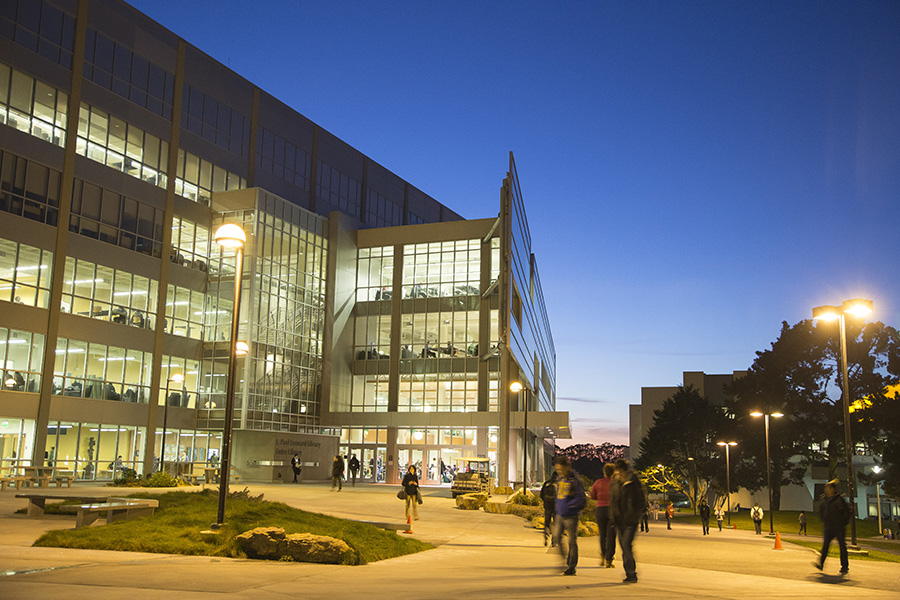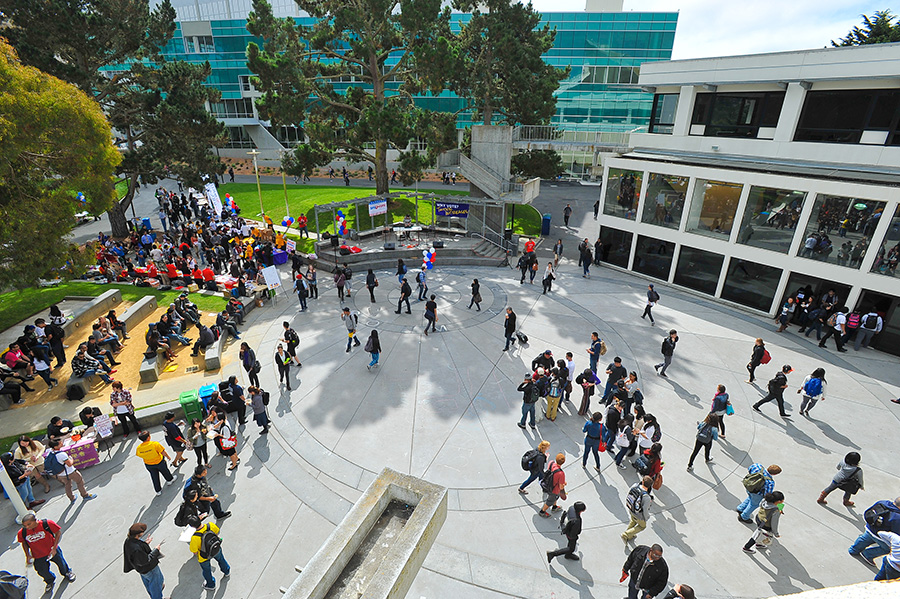College of Health & Social Sciences
The multidisciplinary program in Criminal Justice Studies (CJS) explores the conception and implementation of law, crime and justice systems and ideas. The program emphasizes critical thinking about law, crime and justice systems and their entanglement with larger political economic processes. In particular, the program explores how ideas and systems of crime, law and justice shape broader issues of social justice, especially those related to the experience of race, class, gender, sexuality, and age inequity in the U.S. The program teaches students the skills of critical analysis and ethical reasoning such that students can challenge structures and assumption and innovatively contribute to the assessment of alternative solutions to problems associated with the identification, control and prevention of crime and delinquency.
Some careers that a degree in criminal justice prepares students for are law enforcement (policing, probation, corrections), law (after attending law school), social services (such as counseling at-risk youth), public policy (policy formation, analysis), community organizing.
Some Highlights:
Criminal Justice Student Association, Pre-Law School workshops, career fair
Access the list of the major requirements to better understand the structure of the major.
The roadmap puts all of your graduation requirements into an easy-to-follow semester-by-semester plan so you know what to take to stay on track. Whether you are a freshman or a transfer student, you'll be able to find a roadmap that best fits you.
Besides your major requirements, students must complete their GE and University requirements. Be sure to make sure you've completed all of these requirements for graduation.
To learn more about this major, check out the major department’s website below. You can also find out how you can access their faculty advisors who can assist you not just with course choices, but also answer questions about the field and discuss your career plans.
Department of Criminal Justice Studies
HSS Building, Room 261
Phone: (415) 405-4129
Email: cj@sfsu.edu
Website: https://cj.sfsu.edu/
Interim Chair: Professor Jeff Snipes
Freshmen Student Advising Information
After choosing “Basic Subjects” GE courses in Steps 1-3 of your Orientation process (if you haven’t done so, log onto your Orientation Profile page to follow the “Pre-Orientation Advising Module”), STEP 4 Choosing Major Classes will show you if there are any classes you can take to satisfy major requirements for your first and/or second semester.
Once you have determined your Roadmap above, review the first section below and write down any course recommendations based on your corresponding major roadmap on your Freshmen Class Planner worksheet.
First Semester Course Recommendations — Roadmaps A, B, C & D
|
Major Class & Title |
Units |
Other Requirement Area(s) Met |
|
No major classes are recommended for freshmen.
|
|
|
|
If there are any course(s) listed above, please enter this information onto “Step 4” of your Freshmen Class Planner. |
Advisor Footnotes:
-
Consider taking more General Education courses.
-
CJ 200 and CJ 230 should not be taken the first year.
Once you have made your course choices for Steps 1-4, you may already have between 12-15 units chosen for your first semester—about 4 to 5 classes.
If more units are needed, you will proceed to "Step 5 - Choosing GE Courses" from your Orientation Advising Module after considering the following recommendations...
|
GE Area |
Advisor Notes |
|
A1 Oral Communication |
Covered in “Step 3” on Class Planner |
|
A2 Written English Communication |
Covered in “Step 1” on Class Planner |
|
A3 Critical Thinking |
Covered in “Step 3” on Class Planner |
|
B1 Physical Science |
Consider taking a B3 Lab if chosen |
|
B2 Life Science |
Consider taking a B3 Lab if chosen |
|
B3 Laboratory Science |
Make sure this includes a LEC component if chosen |
|
B4 Quantitative Reasoning |
Covered in “Step 2” on Class Planner |
|
C1 Arts |
There are major courses for this area |
|
C2 Humanities |
There are major courses for this area |
|
D Social Sciences |
There are major courses for this area |
|
D US History |
There are major courses for this area |
|
E Lifelong Learning & Self-Development (LLD) |
Covered in “Step 1” on Class Planner |
|
F Ethnic Studies |
There are major courses for this area |
|
US/CA Government |
Choose any |
Law enforcement, law, public policy, community organizing, working with at-risk youth.
Transfer Student Advising Information
Please see the box above labeled “Major Curriculum/Roadmaps & GE/University Requirements” for information on what courses to take in your first semester at SF State. View our Frequently Asked Questions for Transfers for helpful tips and additional information.




